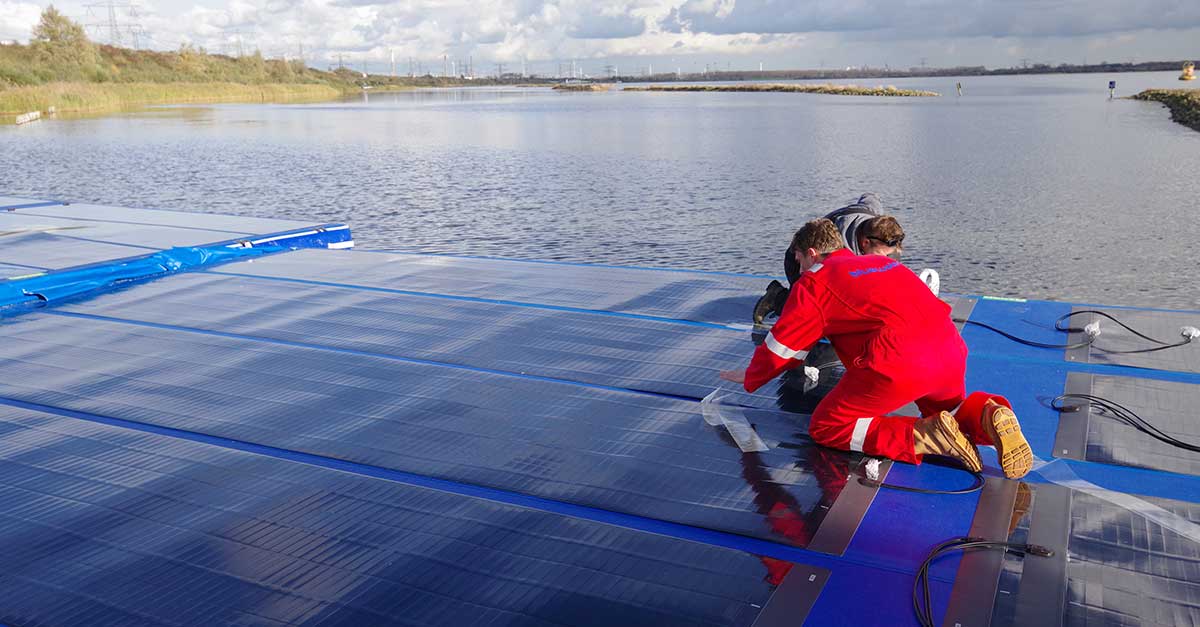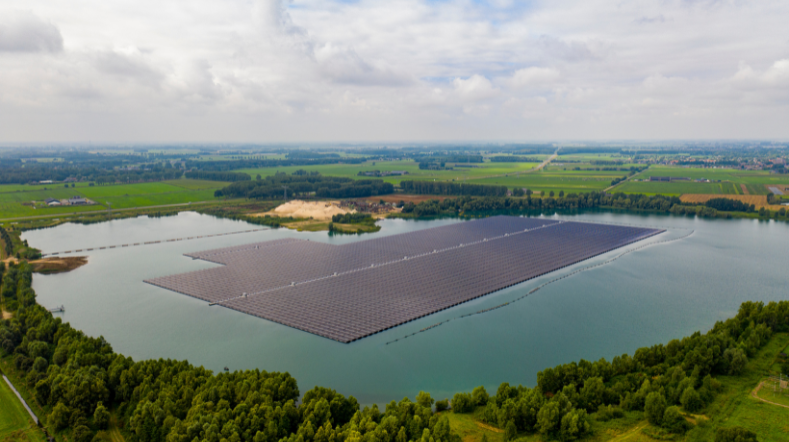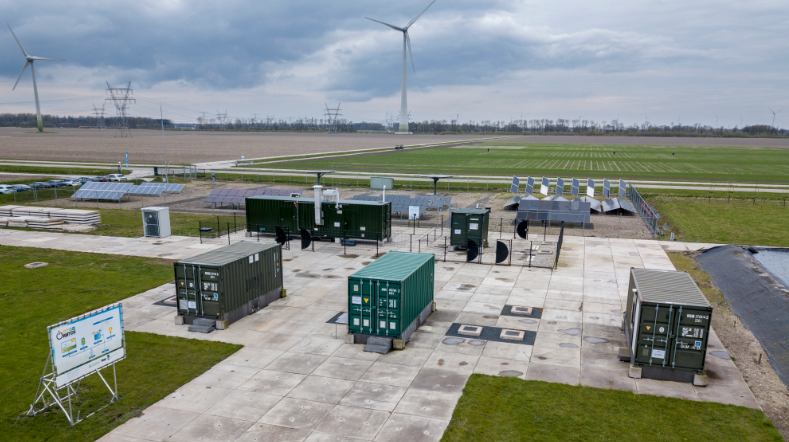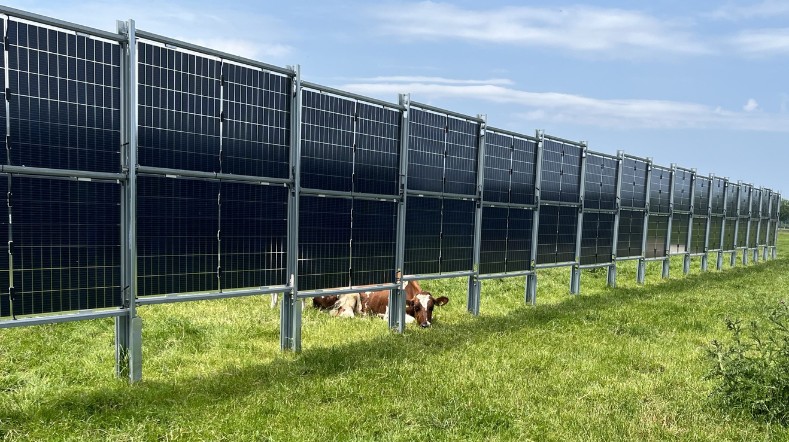Launch of study on new flexible solar energy systems for offshore application
The companies Bluewater and Genap designed a new, floating flexible solar energy system. This system, consisting of flexible floating units with flexible solar panels mounted on them, has been installed over recent days in the TNO Fieldlab in Oostvoornse Meer lake, near the Maasvlakte – a harbour and industrial area close to Rotterdam. The pilot, supported by TNO, Marin, Endures and Avans, is a potential route towards the creation of economically viable offshore photovoltaic systems.
Technical challenges
In this study, the consortium is looking at various aspects in the fieldlab, such as the energy yield of the flexible solar panels, the behaviour of the floating units when faced by waves and strong winds, the growth of organic material on the units, and economic viability.
Solar on water is expected to make a key contribution to the energy transition. A solar energy capacity of 200 gigawatt-peak (GWp) is predicted for the Netherlands in 2050, including 25 GWp on solar panels on inland waterbodies and 45 GWp at offshore solar energy.
There is still work to be done in order to achieve that, says Wim Soppe, researcher at TNO and manager of the Solar@Sea II project: “Solar power at sea or offshore PV does not yet actually exist. It is technically very challenging to install large floating systems with solar panels at sea and keep them operational for decades. In addition, it is important to make these type of systems economically viable. The study of this new concept will generate important insights how to combine technical and economic feasibility.”
Bending with the waves
The concept consists of two floats measuring 7x13m topped by 20 kWp of solar panels. What is special about the structure is that both the solar panels and the floats are made of a flexible material (thin-film PV) developed by the consortium.

This application enables the floats and the panels to bend with the movement of the waves. They offer less resistance to the waves, so that the floats and the anchoring can be lighter and can therefore be produced more cheaply than with rigid floats.
Range of aspects and partners involved
The project is being executed by a broad consortium in which TNO is partnered by Bluewater Energy Services, Genap, Marin, Endures, and Avans University of Applied Sciences.
Bluewater is responsible for anchoring the system; Genap developed the flexible floats; Marin tested the hydrodynamic properties of the floats in its model test basin; Endures is studying organic growth on the panels and drivers, and how to prevent it; and Avans is developing maintenance and recycling strategies for this concept.
Next steps
After completing this project, the next step is to build and install a system on the North Sea. The initial aim is to use the system to test an efficient installation and maintenance method that the consortium is already developing. This is important because installing and maintaining floating systems at sea is considerably harder than on land, which can make it a lot more expensive.
The next ambition is to build a commercial system of 1-5 MWp around 2024, which can be installed and electrically linked up with one of the new wind parks on the North Sea. Because solar and wind energy production have little overlap in time, there is no need to run additional cables to land.
Solar on Water
This study is a major step in the roadmap that has been drawn up by the the National Consortium Solar on Water. This study is an important step in the roadmap drawn up by the National Consortium Sun on Water. The Solar@Sea II project is being carried out with a Top Sector Energy subsidy from the Ministry of Economic Affairs and Climate Change. The Fieldlab Green Economy Westvoorne is made possible by TNO and the Innovation Programme Energy & Climate, an initiative of the Metropolitan Region Rotterdam Den Haag, InnovationQuarter and the Province of Zuid-Holland.
Let yourself be inspired
Wind energy webinars

Carbon footprint floating solar energy systems similar to land systems


SWITCH tackles the energy issues of the future


SWITCH field lab of TNO and Wageningen University & Research/ACRRES opened


Study solar systems in dairy farming launched


